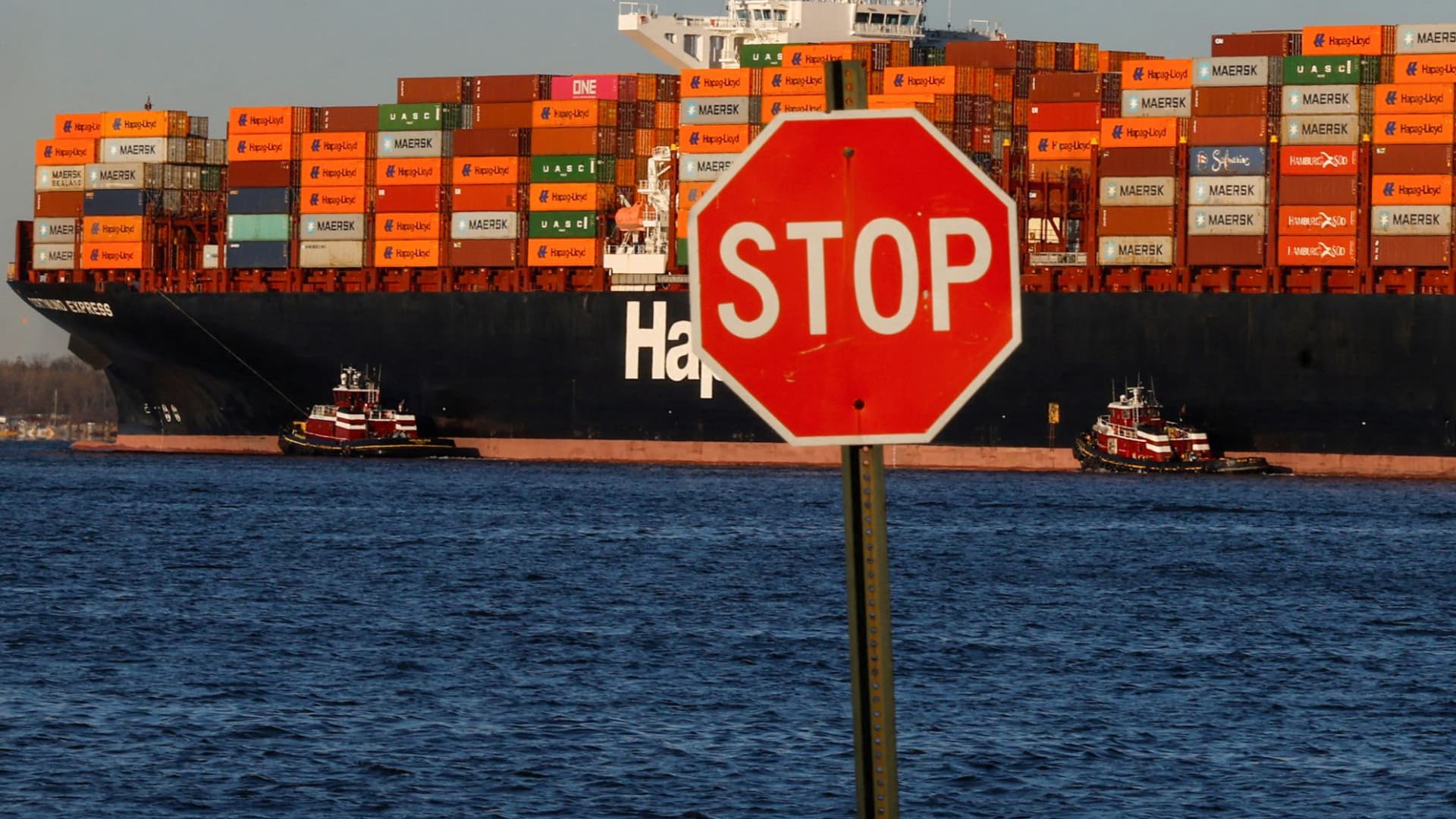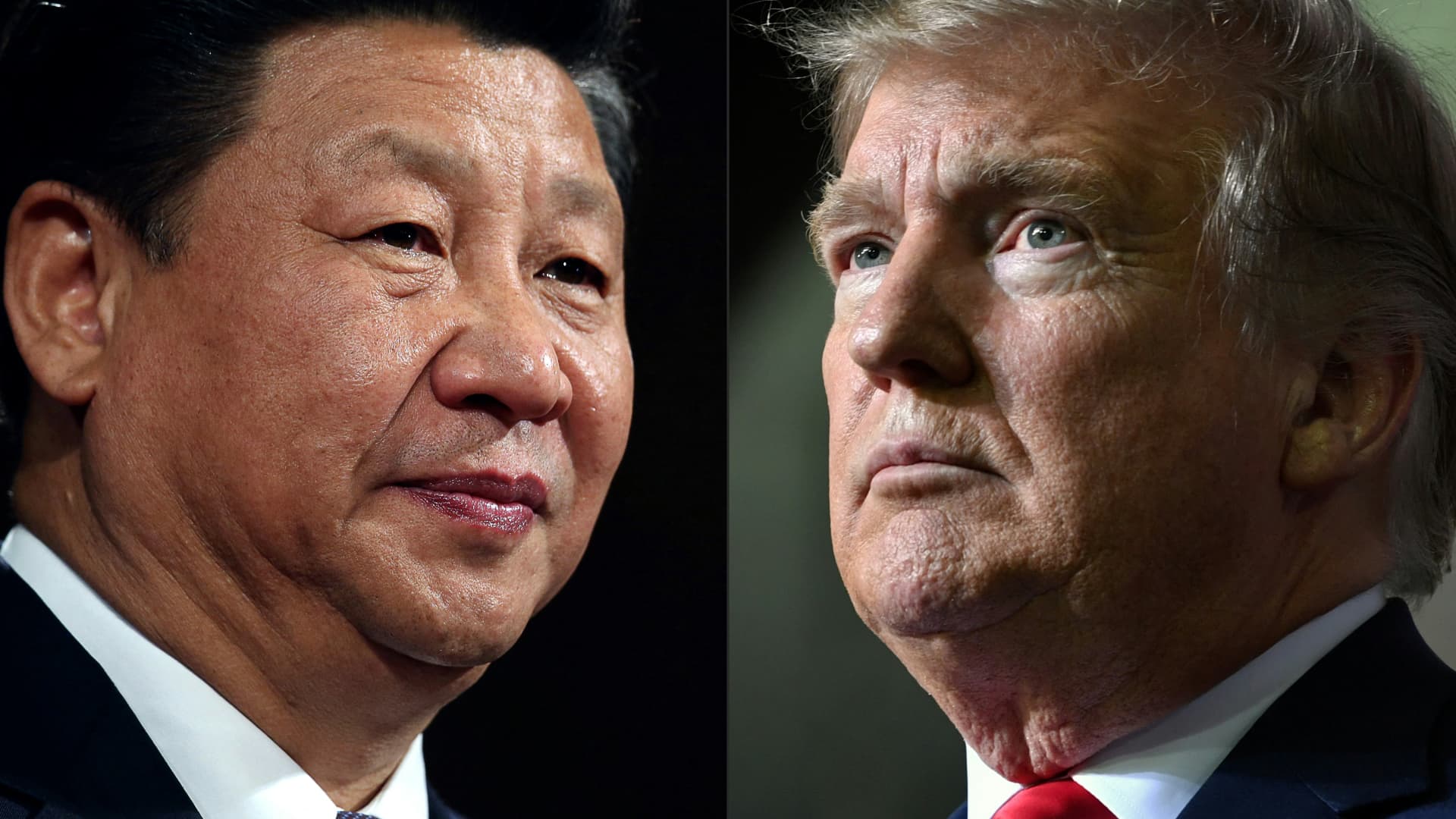A cargo ship sits outside of the Port of Elizabeth marine terminal seen from Bayonne, New Jersey, U.S., April 9 2025.
Shannon Stapleton | Reuters
Trade barriers can come in many forms. Tariffs are just one. Onerous licensing requirements, export restrictions and fines on shipping are other obstacles.
Nvidia said Tuesday it would be taking a $5.5 billion charge related to canceled chip exports to China because of new licensing rules from the U.S. government. Beijing has retaliated to Trump tariffs by implementing export restrictions on rare earth elements — integral to many electronics and defense technologies — to the United States. Donald Trump’s administration has been floating the idea of imposing levies on Chinese-made containerships calling at U.S. ports.
Given those developments, the World Trade Organization warned on Wednesday that the outlook for global trade has “deteriorated sharply,” and forecast a 0.2% decline in 2025. It’s not mere fearmongering: Shipping vessels originating from China are already canceling their journeys.
Trade, in another context, also occurs on the stock market — which has seen heightened volatility since U.S. President Donald Trump’s tariff onslaught. U.S. stocks fell Wednesday as trade war fears keep investors jittery.
What you need to know today
And finally…
U.S. President Donald Trump meets with El Salvador President Nayib Bukele (not pictured) in the Oval Office at the White House in Washington, D.C., U.S., April 14, 2025.
Kevin Lamarque | Reuters
Wall Street trading desks are feasting on the volatility from Trump’s global upheaval
Wall Street banks just posted their biggest-ever haul from stock trading as the opening months of Trump’s tenure led to upheavals across asset classes, as institutional investors around the world position themselves for a new regime.
Goldman Sachs, Morgan Stanley, JPMorgan Chase and Bank of America each notched record equities trading revenue in the first quarter, with the first three generating roughly $4 billion in revenue apiece.
Trump’s second time in office was supposed to be good for Wall Street’s dealmakers, the investment bankers handling billion-dollar acquisitions and high-profile IPO listings. Instead, deal activity has remained tepid, and the biggest beneficiaries so far have been sitting on bank’s trading floors.











